Review: is the 2021 Porsche 911 Turbo S simply too perfect?
Porsche's new technical flagship it every bit as fast, capable, and comfortable as you'd expect. But is it too perfect?
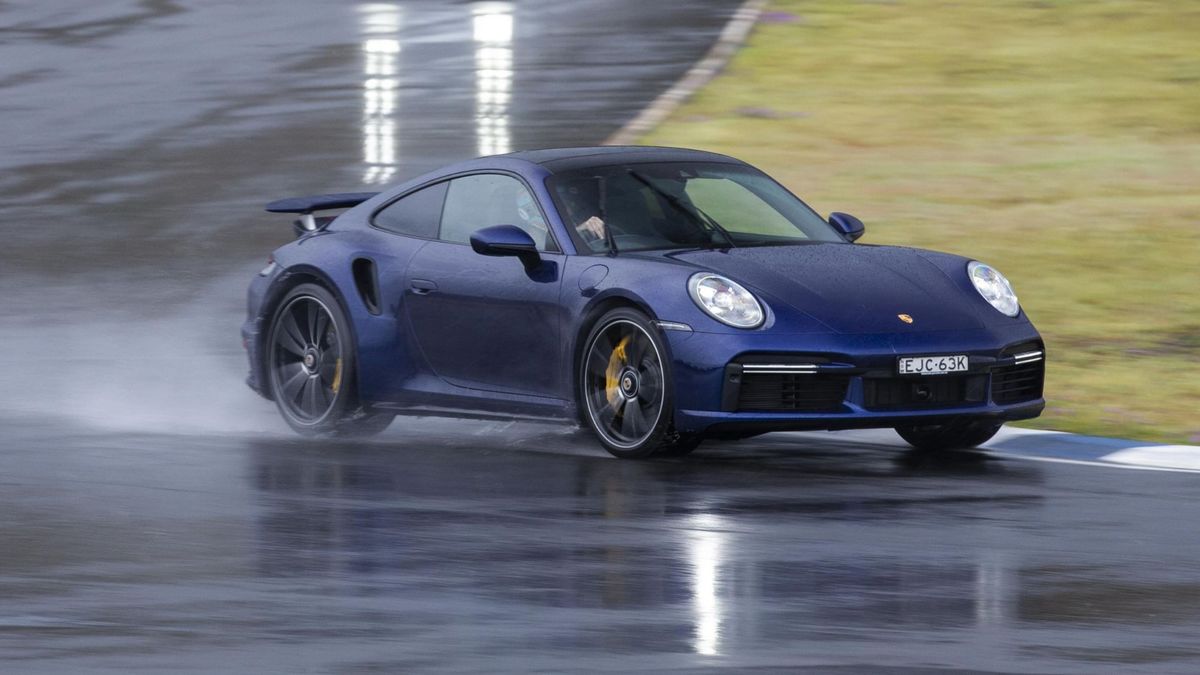
The Porsche 911 Turbo S really should need no introduction. It has long been the go-to choice for people who want ultimate power and prestige in a daily driver, a car that feels at home in a Coles carpark or while doing 300km/h on the highway (in Germany… of course).
The new 992-generation Turbo S replaces what was already one of the most complete cars money could buy, and Porsche hasn’t missed a beat in creating what can perhaps be regarded as the best daily-drivable sports car.
In doing so, however, the Stuttgart-based brand has further separated the 911 Turbo S from its range of GT cars, specifically the GT3, GT3 RS, and GT2 RS.
There was already separation in the previous 991.2-generation Turbo S, but the new car takes the concept of a comfortable daily one step further – yet it has more power, more torque, better aero, faster acceleration, and even better road compliance than ever before.
The real question, though, is not whether the Turbo S is an amazing cat, because it is.
Instead, it’s worth asking if its slightly gentler nature should see it compared to cars such as the Bentley Continental and Aston Marin DBS Superleggera instead of traditional rivals like the Audi R8 and McLaren Sport Series cars?
We spent a few days with a 911 Turbo S coupe and cabriolet in rainy Brisbane and drove to Morgan Park raceway to find out how Porsche has taken its over-achieving sports car even closer to perfection.
How much does the Porsche 911 Turbo S cost?
The 2021 Porsche 911 Turbo S coupe is priced from $473,500 before on-road costs and options, while the 911 Turbo S Cabriolet pushes that further to $494,500 before on-roads.
Drop the S from the end of the name and you’ll pay $396,500 before on-roads for the 911 Turbo coupe and $417,500 before on-roads for the 911 Turbo Cabriolet.
What do you get?
You get arguably the best daily sports car on the planet. But it’s not just a refresh of the 991.2 – although the 992-generation once again evolves the iconic Porsche 911 shape, the new car is actually substantially different from its predecessor.
Firstly, there is an all-new engine (more on that below). The body is bigger with broader front fenders, and is 45mm wider when measured above the front axle (1840mm).
Porsche has increased the overall width by 20 millimetres above the rear axle (1900 mm) when compared to the previous Turbo S.
Aerodynamically, the 911 Turbo S is now more active than ever.
There are active cooling flaps to allow air in when necessary and close for aerodynamic efficiency when it’s not, there’s a variable front lip spoiler that can position itself three ways, and (perhaps the coolest feature of the car) there’s an extendable rear wing.
Porsche says the new rear spoiler has an eight per cent larger effective area than the 991.2 Turbo S wing.
The aero can be set up for rainy weather, which sees the rear wing extend and the front lip spoiler retract to focus downforce on the rear for better stability.
On the other hand if you happen to find yourself on track, the wing works out when to reduce downforce to improve grip.
To put all that in perspective, active aerodynamics aren’t exactly new – but Porsche has taken it one step further with the ability to set up the aero for different driving modes and conditions. As we found out, wet mode feels miraculous.
In terms of features, Porsche is always asking for you to tick a few option boxes (such as those for active safety, which really should be standard) – and you most likely will.
But the 911 Turbo S comes packed with features such as adaptive sports seats with 18-way power adjustment, 20-inch front and 21-inch rear Turbo S wheels, 10.9-inch Porsche Communication Management infotainment with Apple CarPlay, front and rear parking sensors with a reversing camera, lane change assist, keyless entry, a Bose sound system, USB ports (unfortunately not USB-C), and front seat heating.
There are definitely some options that should be standard, such as the Sports Exhaust which will set you back around $6500, or the front nose lift for $5000. For the full pricing breakdown on the Porsche 911, check out our pricing and specs story.
Is the Porsche 911 Turbo S safe?
There is no crash rating data for the Porsche 911 Turbo S, or any 911 from the 992 generation – and it’s unlikely to be crash tested, given its low volume.
However, Porsche Australia will charge you $3570 to option the adaptive cruise system in order to get an autonomous emergency braking system which should absolutely be standard.
In saying that, if you’re going to spend more than $500,000 on a Turbo S we’re sure a long, hard stare at the salesperson will have that package thrown in for free. We would absolutely recommend this be optioned.
What is the Porsche 911 Turbo S like on the inside?
There are 24 interior colour options for the Turbo S without going into the full individualisation program, from black to grey, red to tan, and even green. The Turbo S interior can be had in a variety of subtle colours.
If you want something wild to perhaps match the Lizard Green or Miami Blue colour scheme of the exterior, you may need to individualise your choice.
We found the seating position and comfort from the 18-way front seats sensational for long-distance driving, but they still provide more than adequate bolstering when you’re punting the car around the track.
The infotainment system is super fast, and the display is crisp and mostly non-reflective in the sun.
We aren’t fans of the Braun shaver gear lever. We’ve tried to like it since we first saw the 992 a few years ago, but it’s just hard to love and unnecessarily small.
You’ll get used to it, but if the idea was to save space Porsche could have just put buttons for P, R, N, D on the transmission tunnel because there’s no soul-stirring sensation when you go to grab your miniature gear stick. In fact, it feels the opposite.
Furthermore, where the previous 991.2-generation model had a bunch of buttons to the left and right of the gear lever the 992 just has empty space. We feel that space can be better utilised for something more.
The back seats in the 991 Turbo S are made for small kids, and small kids only. You can, if you absolutely have to, force an adult in there kicking and screaming, but it will be for short drives.
What’s under the bonnet?
Here’s the party trick of the 911 Turbo S. It’s insanely powerful with its new six-cylinder 3.8-litre boxer engine that houses two new, larger variable turbine geometry turbochargers that make use of a redesigned charge air cooling system with electrically adjustable waste gate flaps and direct fuel injection with piezo injectors.
Don’t care about the technical chat? The headline power figure is an astonishing 478kW of power at 6750 rpm (up 51kW) and an insane 800Nm of torque (up 50Nm).
Porsche claims the 911 Turbo S will do 0-100km/h in 2.7 seconds and will go from 0-200km/h in a silly 8.9 seconds, a full second faster than before. Flat out you’ll be doing 330km/h.
We actually attached our performance testing equipment to the car and it clocked a 0-100km/h time of 2.81 seconds and a 60-120km/h time of 2.19 seconds.
Its 420mm carbon ceramic front rotors with new 10-piston (yeah, that’s not a misprint) calipers and the familiar 390mm rear rotors helped achieve a 100-0km/h stopping time of 2.71 seconds at 34.37m, and 60-0km/h stopping time of 1.72 seconds at 12.31m. Remarkable.
How does the Porsche 911 Turbo S drive?
It’s hard to really label the 911 Turbo S as anything but sensational. You could easily argue the new Turbo S is the best multi-purpose sports car on the planet. It does everything amazingly well.
During our drive out from Brisbane to Warwick and back we encountered terrible roads, rain, and all kinds of other inclement conditions, and despite having enough power and torque to tow an Airbus A380 the Turbo S sat comfortably with exemplary ride comfort and compliance.
The first few hundred buyers of the Turbo S should be other car companies. If Porsche can make a car this fast and heavy (1640kg unladen) riding on 20 and 21-inch wheels with super low-profile tyres ride so well, then there’s no excuse for any one else.
The active suspension and ride quality is unbeatable. It’s as comfortable as a Bentley Continental GT, but doesn’t feel as floaty when switched into Sport or Sport+ mode.
The power and torque delivery from the new engine can at first feel a little laggy, mainly because you have to flick into Sport or Sport+ to get the transmission to hold gears a little longer and have the turbo spool up faster as a result.
Once it’s on song, that 2.8 seconds to 100km/h that we tested feels ridiculous. This car is stupidly fast. But it’s more the 100-200km/h performance that’s so impressive.
When we drove the Bugatti Veyron some 12 years ago, we never imagined at some point a 911 Turbo S would start approaching it for performance.
To put some numbers in perspective, the W16 quad-turbo Bugatti Veyron Super Sport does 0-200km/h in 7.3 seconds, just 1.6 seconds faster than this Porsche… which has 10 fewer cylinders and is cheaper by a few million dollars.
The eight-speed PDK changes gears rapidly when required but will also be lazy and comfortable, using that 800Nm wave of torque when cruising on the highway.
While we enjoyed our mini Veyron on the road, we were gobsmacked by its on-track performance on what are relatively ordinary Goodyear tyres.
We headed to Morgan Park in the small Queensland town of Warwick. Due to some rain we spent the morning driving on a damp track, which highlighted just how insanely quick this car is in Wet mode. You simply point and shoot, and even on a slippery race track the Turbo S works it out for you.
As the track dried we expected the Turbo S to drop off in its ability to impress us, but that was not the case.
We dropped a Bathurst-winning driver into both a GT2 RS (on Michelin Cup 2 tyres) and the new 911 Turbo S, and the lap time (in the dry) was only 1.52 seconds different (on an 80 second lap) in favour of Porsche’s ultimate track car. That’s truly an extraordinary number.
We can only estimate the Turbo S would be as quick as the GT2 RS if it had some proper track tyres on it.
In our testing, we found the Turbo S’ usable power and torque band unrivalled. You can push hard into corners knowing the electronics will work things out before accelerating whenever you deem appropriate, and myriad differentials and stability gadgets will get that torque to the road no matter what.
But all of this comes at a price. The 911 Turbo S is very subdued in its character. There is no howling or screams from the turbo engine and never once did we feel as though the Turbo S would bite back.
It liked being driven hard and never complained, which is a good thing, but at some point we feel the car needs to bite to make you feel alive. The Turbo S is like RoboCop running in safe mode.
If we drove the GT2 RS in the same carefree manner that we did the Turbo S, we would have ended up somewhere in the wall with a rather expensive repair bill.
It makes sense, of course. Porsche wants to push customers to its GT cars if they do regular track days, and the upcoming GT3 and GT3 RS promise to take things a level above – but the Turbo S is just so damn good, well, we’re almost asking Porsche to add some flaws to give it some character.
Overall, our only complaint with the Turbo S drive is that it’s just too good, and we would rather have our 911 a little on the naughty side... ordering on homicidal.
How much does the Porsche 911 Turbo S cost to run?
It will cost you $695 to service your Turbo S once a year thanks to Porsche’s fixed priced servicing, which is significantly less than what it costs to replace a titanium wheel nut on the Bugatti Veyron.
Actually, $695 is less than what it costs to service many European cars, let alone a $500,000 one.
Our take on the Porsche 911 Turbo S
Don’t think too long about it. Buy a 2021 Porsche 911 Turbo S because it’s the best-rounded sports car on the planet right now.
It’s worth considering the Bentley Continental GT as a potential substitute if you feel like comfort is more important than dynamics, but otherwise you’ll have no regrets with a 911.
This article is published under license from Car Expert: the original article can be viewed here
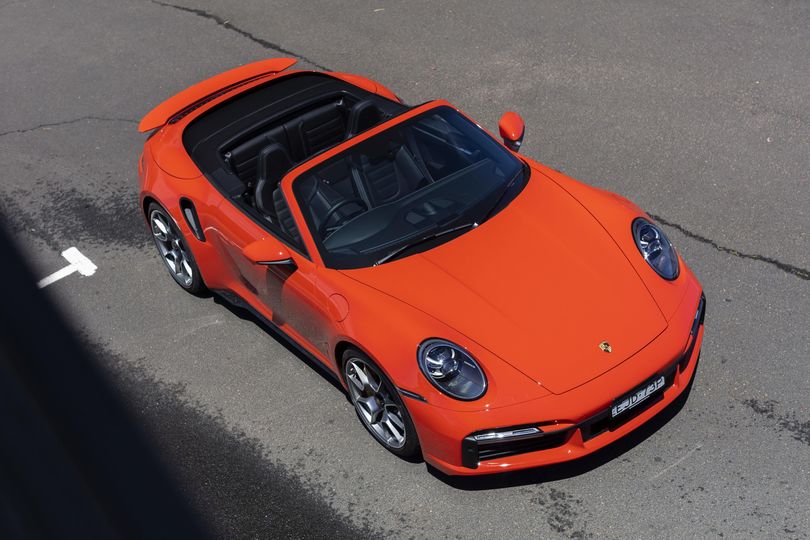
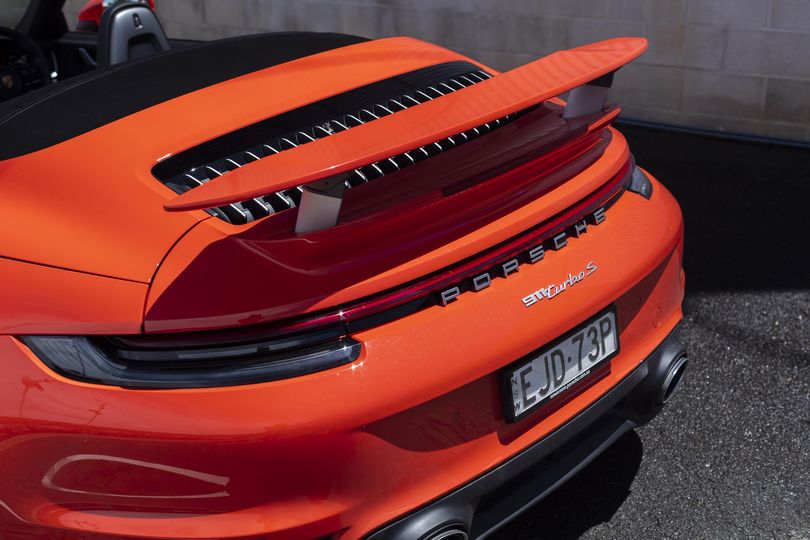
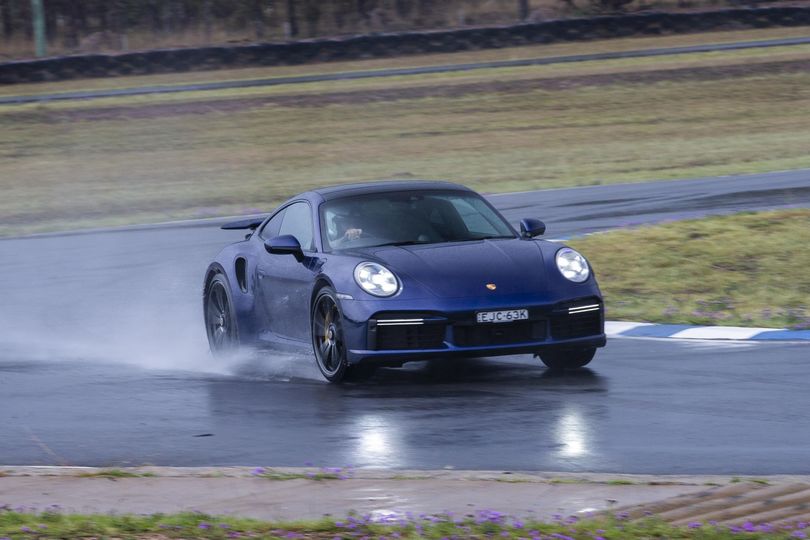
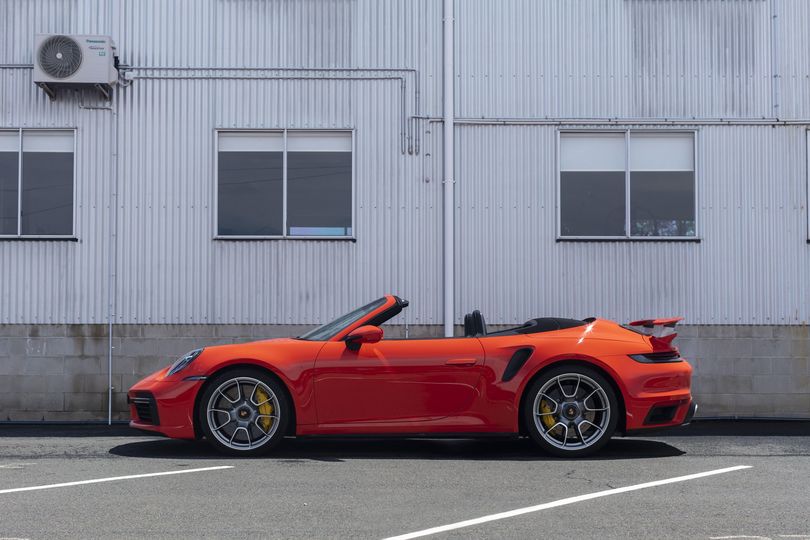
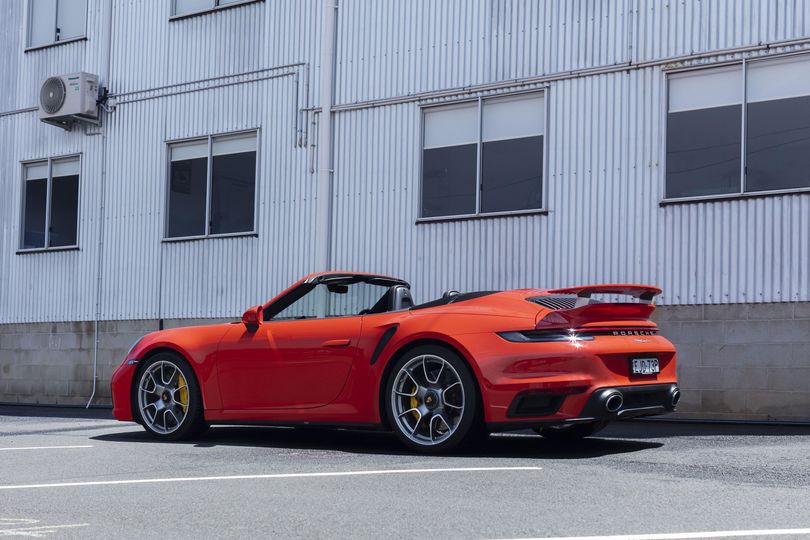
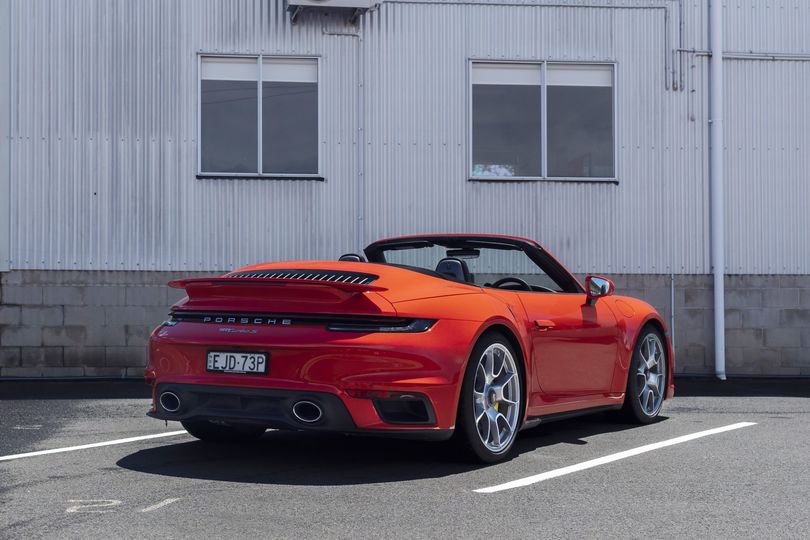
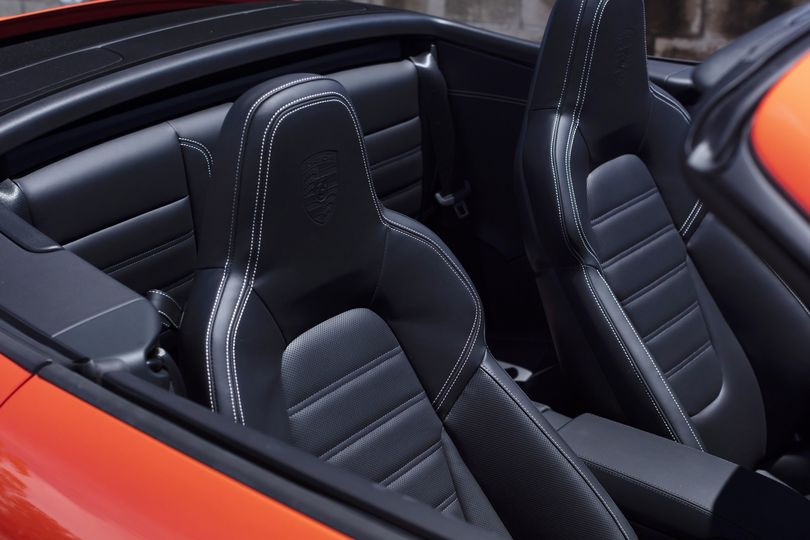
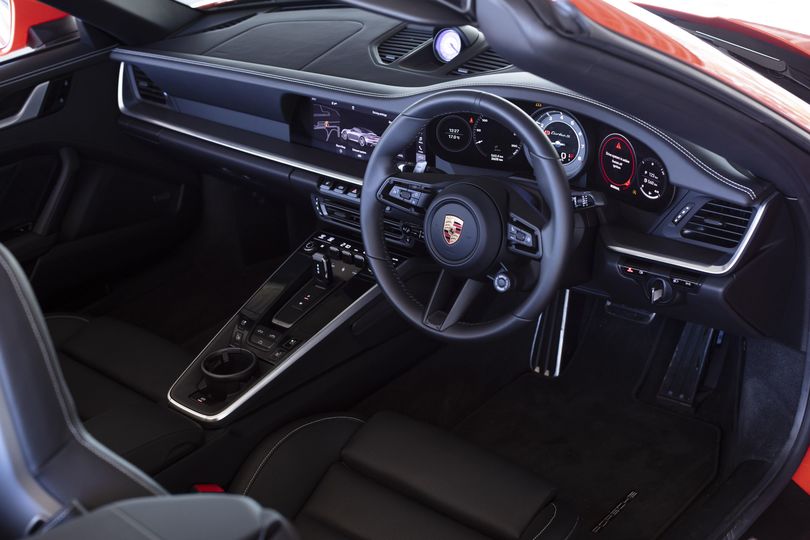
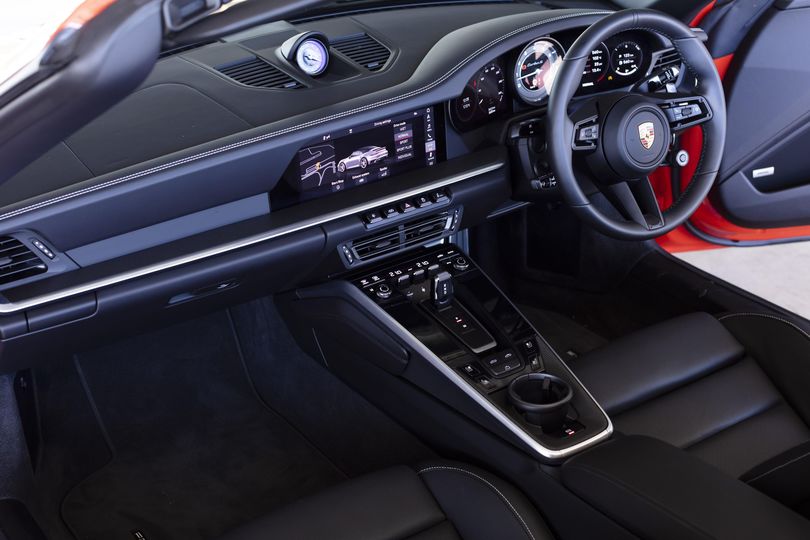
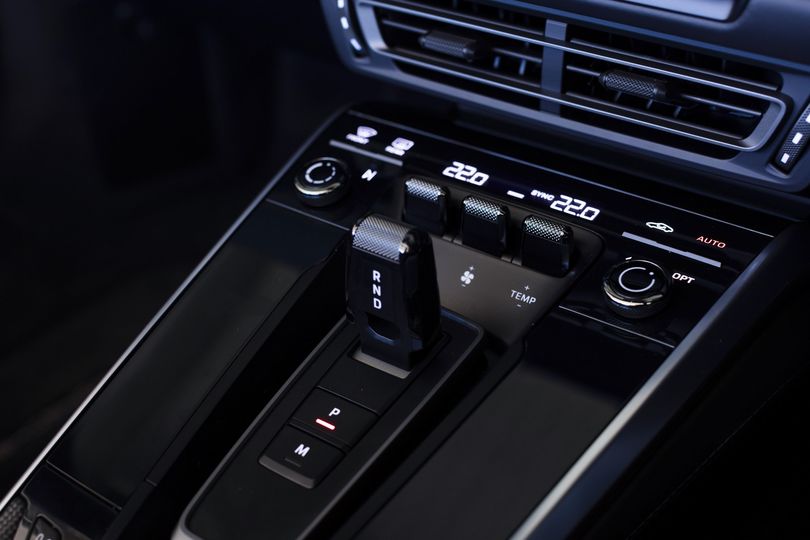
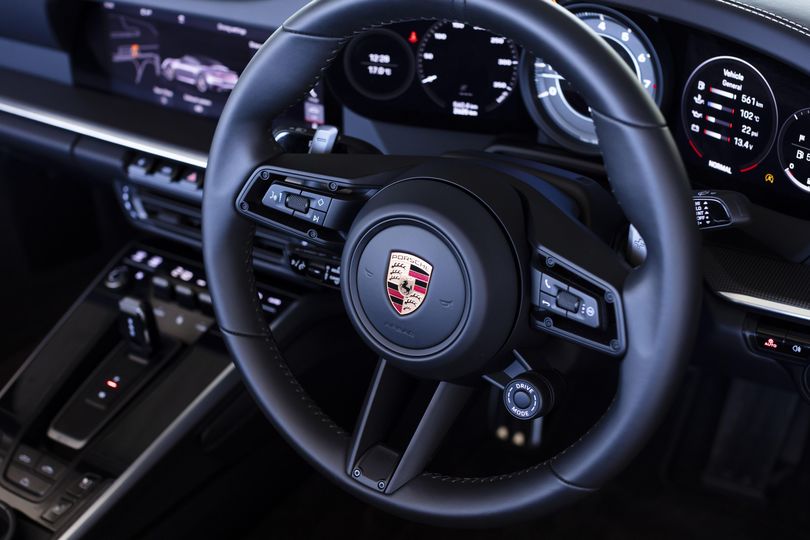
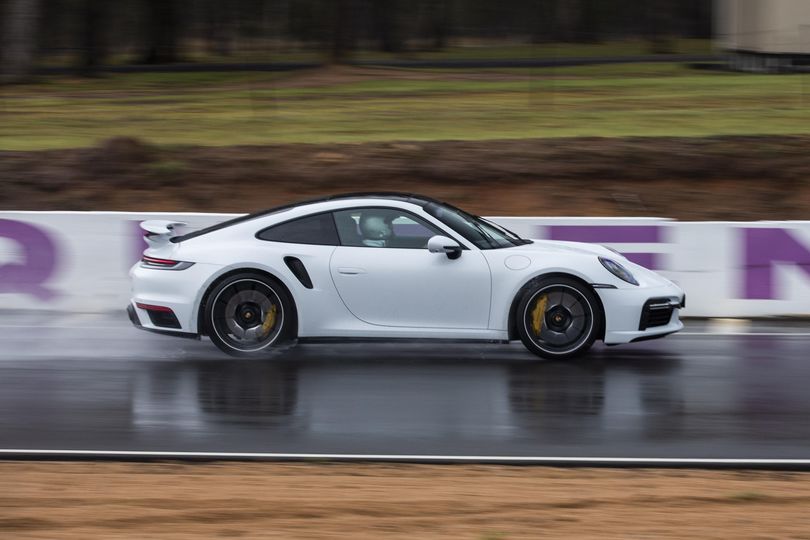
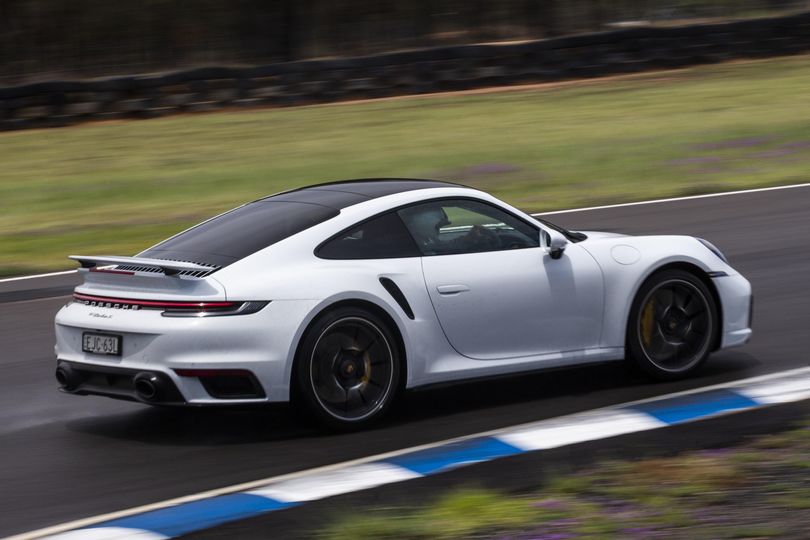
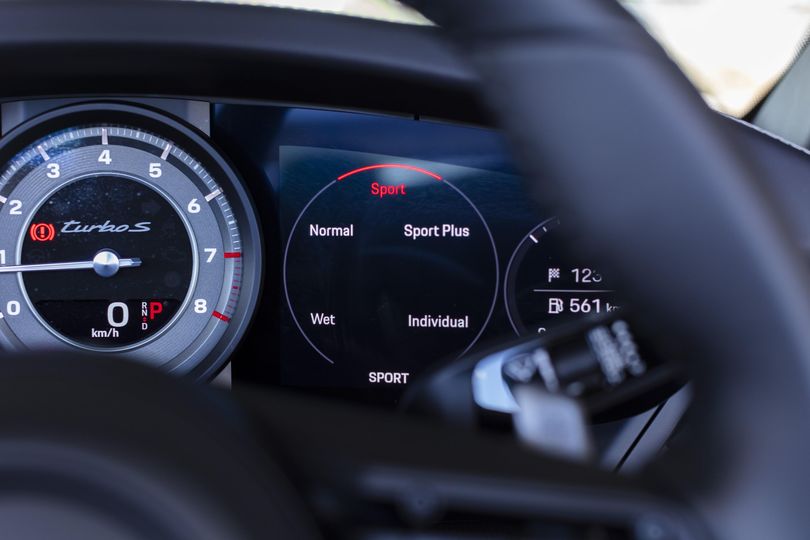
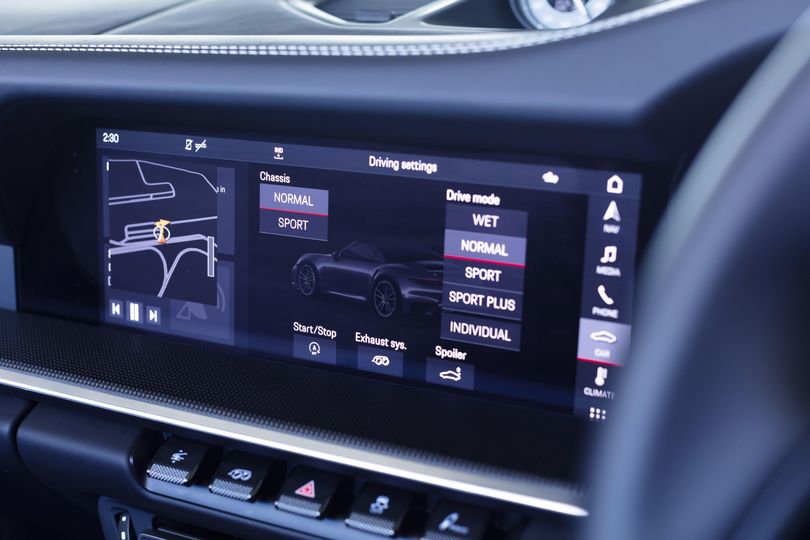
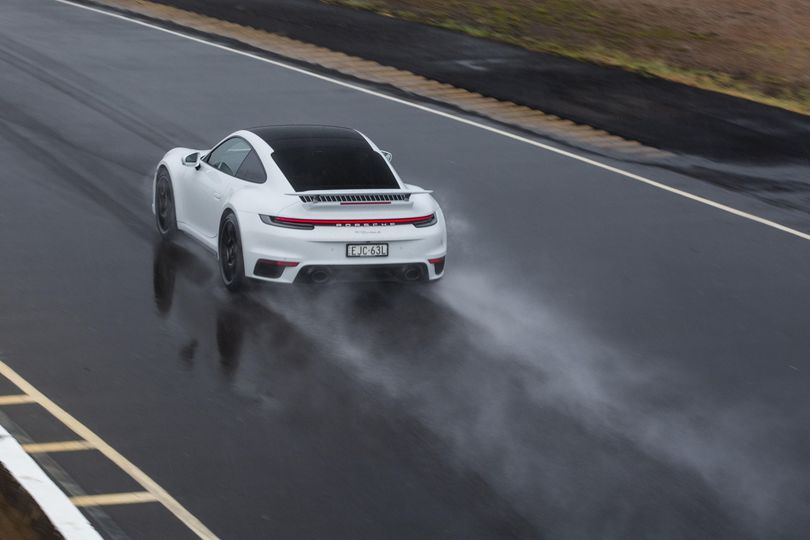
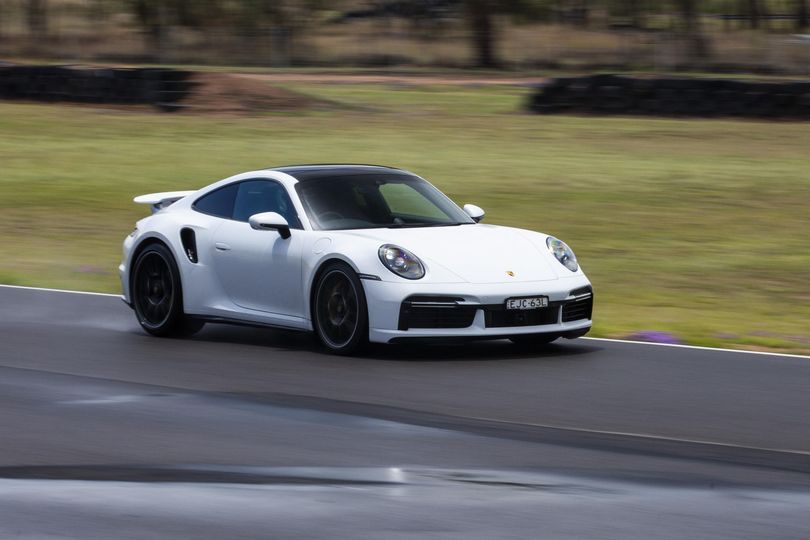
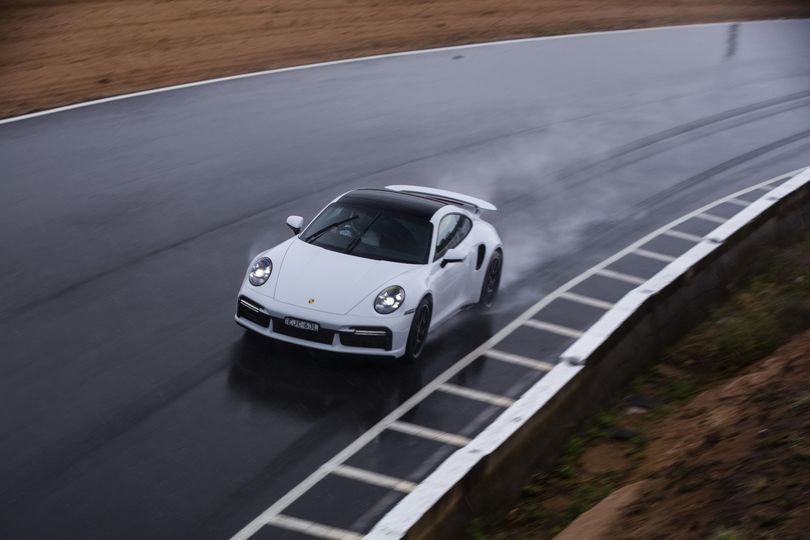
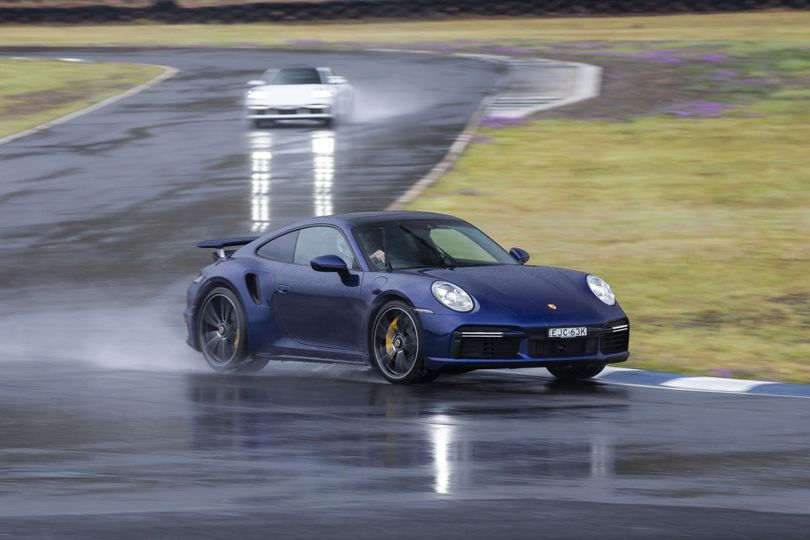
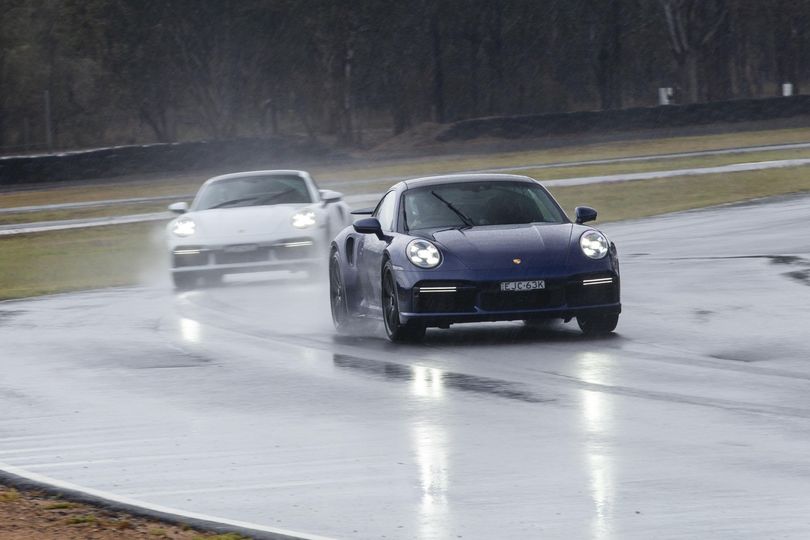
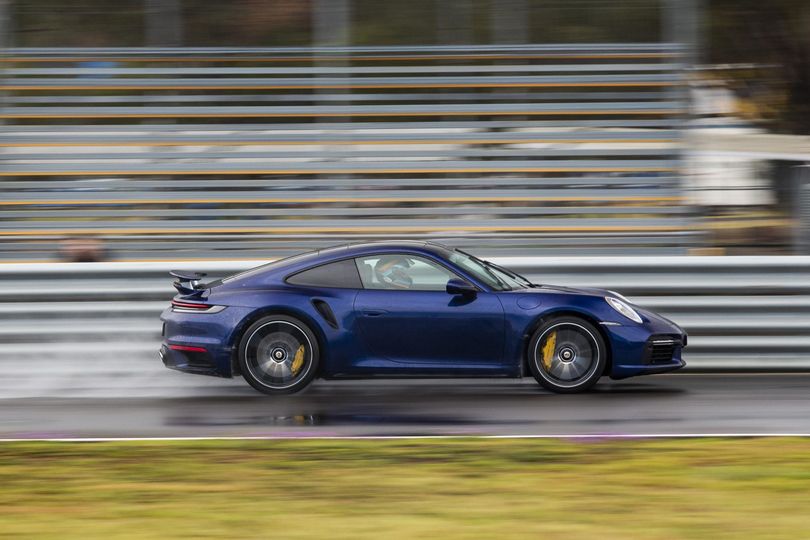
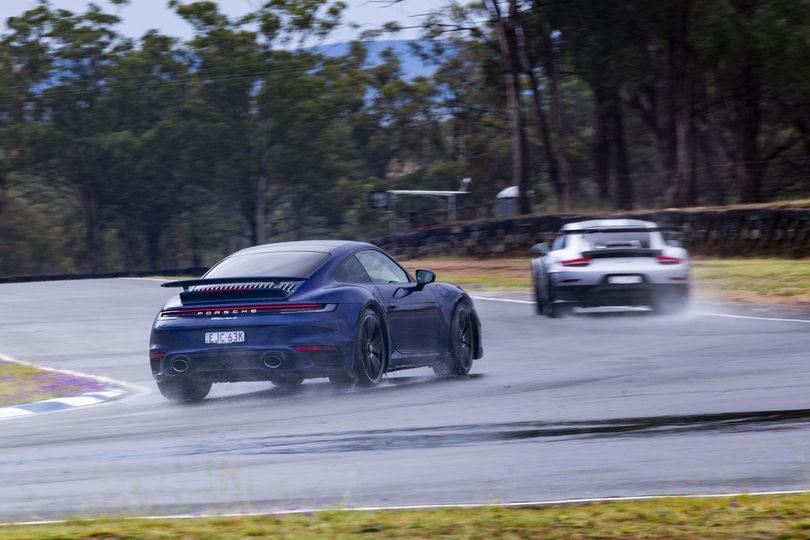

Hi Guest, join in the discussion on Review: is the 2021 Porsche 911 Turbo S simply too perfect?